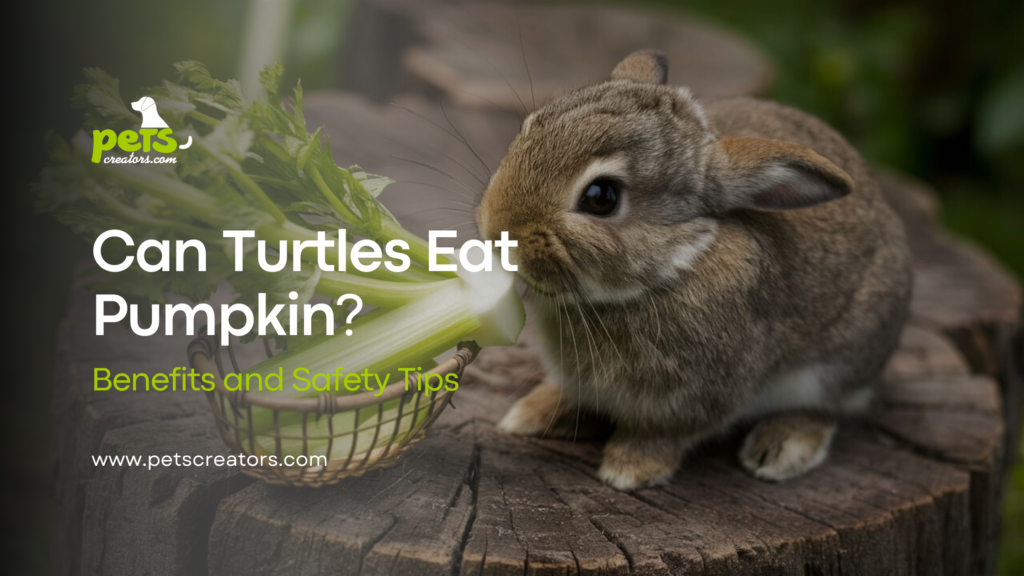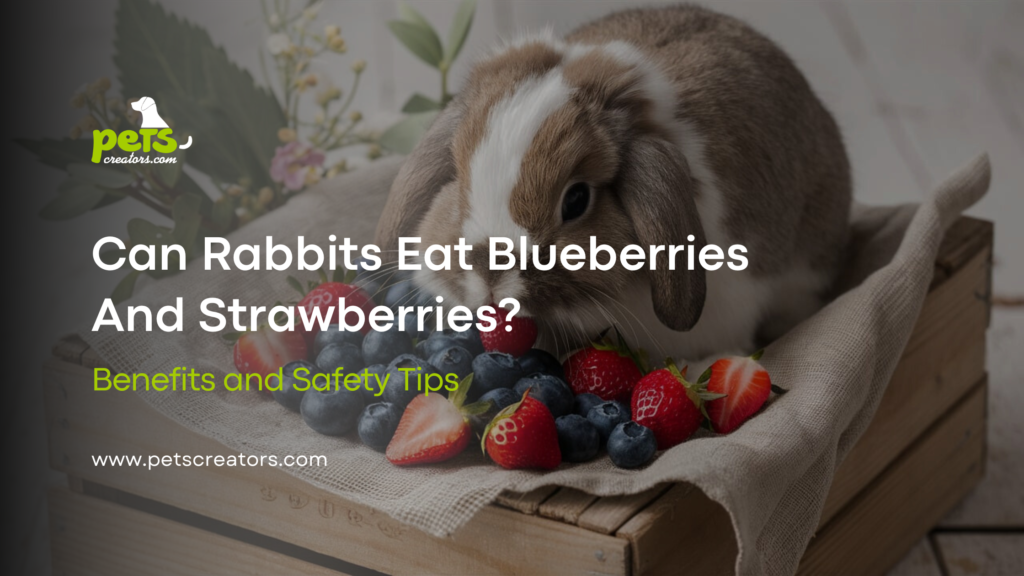It may often be challenging to feed rabbits, more so vegetables like celery. Rabbits have their dietary needs that should be met but not all vegetables are okay for them. In this article I will try to answer the question – should you feed your furry friend celery? In this case, I will provide information about the celery’s nutritious contents, possible dangers, and proper feeding. Knowledge of these aspects will assist you in determining the role and necessity of serving celery to rabbits. Such precautions aim at making sure that your bunny remains happy and healthy as it is supposed to be!
Safe Alternative to Rabbit Eat Celery?
Rabbits are kept as pets and are very cute animals, and the most important thing you need to know about them is their feeding. Whereas many people may ask themselves whether or not celery is a proper part of their rabbit’s diet, it is more important to learn about proper substitutes. A rabbit’s diet should mainly consist of hay, fresh vegetables and a limited number of pelleted foods. The recommendation is to replace celery with vegetables that include lettuce, kale, and bell peppers. The following vegetables have similar nutrients to celery but with fewer risks, It is wise to add any new food gradually and observe your rabbit for any signs of intolerance.
Risks of Feeding Celery to Rabbits
Feeding celery to rabbits comes with several risks. The high water content in celery can cause digestive issues in rabbits. Celery strings can also pose a choking hazard or cause blockages in their digestive system. Additionally, if the celery isn’t thoroughly washed, it might contain pesticides harmful to rabbits. While small amounts of celery can be given occasionally, it’s not recommended as a regular part of their diet. It’s always better to stick to vegetables that are known to be safe and beneficial for rabbits. Can Rabbits Eat Celery?
Effects of Celery on Rabbits
Thus, celery can have both an impact and a drawback for rabbits. On the positive side, it could contribute to the body’s water intake needs because of its high water composition, and it has some vitamins and minerals. But, the potential disadvantages are greater than the advantages. The stalks of celery can cause digestive upset and rabbits have difficulty breaking down the string-like texture of the celery. You should always keep an eye on your rabbit after introducing celery to prevent health complications should they arise. If your rabbit is showing signs of discomfort or something wrong with its digestion, do not feed it celery any further.

Are Celery Good for Rabbits?
While celery isn’t toxic to rabbits, it isn’t the best vegetable to include in their diet regularly. Rabbits thrive on a diet high in fibre, low in sugar, and free from foods that can cause gastrointestinal issues. Celery, with its high water content and fibrous strings, doesn’t align well with these dietary needs. Occasionally offering small pieces of celery might be okay, but it’s better to focus on vegetables that are known to be safe and nutritious for rabbits, such as leafy greens and root vegetables.
Nutritional Value of Celery for Rabbits
Celery is low in calories and contains some vitamins and minerals like vitamin K, vitamin C, and potassium. However, it doesn’t provide the high fibre content that rabbits need for their digestive health. The nutritional benefits of celery are overshadowed by the potential risks it poses to rabbits. When considering the overall diet of your rabbit, it’s better to choose vegetables that offer more nutritional value and fewer risks.
How is Celery Made?
Celery is a plant that is mostly found in marshland zones and it is from the Apiaceae family. It is mainly grown in cool regions and it needs a lot of water to produce crops. It has large erect stems that are covered with fibres and are cut at ground level when they have grown to the right size. Home-grown or commercial celery can be planted. It is hence advisable for rabbit owners to wash the celery or better yet, use organic celery to avoid their pets consuming pesticide substances. Learning how celery is grown aids in decision-making concerning its safety for rabbit consumption.
What Types of Celery Are Safe for Rabbits?
When it comes to feeding celery to rabbits, not all types are equally safe. The most commonly available type, green celery, is the one most people think of. Organic celery is safer because it doesn’t have pesticide residues. However, regardless of the type, celery should always be given in small amounts. Avoid giving celery with a lot of strings, as these can cause choking or digestive issues. If you choose to give your rabbit celery, opt for small, chopped pieces to minimize risks.
Do Wild Rabbits Eat Celery?
Wild rabbits typically do not eat celery. Their diet consists mainly of grasses, herbs, and other vegetation found in their natural habitat. Wild rabbits may occasionally nibble on garden vegetables, but they prefer foods that are more fibrous and closer to their natural diet. Celery is not commonly found in the wild, and thus, wild rabbits aren’t adapted to eating it. If you’re caring for a pet rabbit, it’s best to mimic the natural diet of wild rabbits to ensure their health and well-being.
Why is Eating Celery Harmful to Rabbits?
Eating celery can be harmful to rabbits primarily due to its high water content and fibrous nature. The water content can disrupt their digestive system, leading to loose stools. The fibrous strings in celery can cause choking or gastrointestinal blockages. Additionally, if the celery isn’t organic, it might contain harmful pesticides. Given these risks, it’s better to choose safer vegetables for your rabbit’s diet. Always prioritize your rabbit’s health by providing foods that are known to be beneficial and pose minimal risks.

Store-bought Celery and Rabbits
Celery bought from the stores may still have signs of pesticide spray on it which is dangerous for rabbits to consume. Celery that has been cleaned to the extent may also still contain these chemicals. The preferred option again is the organic celery but it should also be administered sparingly. It is recommended that any store-bought vegetables should be introduced gradually, first offering only small portions and then checking how the bunny reacts. It’s also crucial to offer a rabbit a variety of vegetables so the little friend can get the necessary amount of various vitamins and minerals.
How Often Can My Rabbit Eat Celery?
Rabbits should only eat celery occasionally and in small amounts. Given the potential risks associated with celery, it’s best not to make it a regular part of their diet. A small piece of celery once in a while can be a treat, but it shouldn’t replace other more nutritious and safer vegetables. Always monitor your rabbit after giving them celery to ensure they don’t experience any digestive issues or discomfort.
How Many Types of Celery Are There?
There are several types of celery, including green celery, celeriac (root celery), and leaf celery. Green celery is the most common type found in grocery stores. Celeriac is grown for its large root, which is used in cooking. Leaf celery, or Chinese celery, has thinner stalks and more leaves. For rabbits, green celery is the type most commonly considered for their diet. However, due to the potential risks, even this type should be given sparingly and with caution.
Observing Your Rabbit After Eating Celery
It’s crucial to observe your rabbit after feeding them celery. Look for any signs of digestive distress, such as changes in their stool, lethargy, or loss of appetite. If your rabbit shows any of these symptoms, stop feeding them celery immediately and consult a veterinarian. Continuous observation ensures that any adverse reactions are caught early, and appropriate measures can be taken to maintain your rabbit’s health.
What About Celery Seeds and Leaves?
Celery seeds and leaves should generally be avoided when feeding rabbits. The seeds can be particularly harmful due to their concentrated nature, which might contain compounds that are not suitable for rabbits. The leaves, while not as risky as the seeds, can still cause digestive issues if consumed in large amounts. Stick to safer vegetables and ensure any celery given is in very small, manageable pieces to avoid potential health risks.
Tips for Serving Celery to Bunnies
If you decide to serve celery to your bunny, follow these tips to minimize risks. First, always wash the celery thoroughly to remove any pesticides. Cut the celery into small, manageable pieces to avoid choking hazards. Introduce celery gradually and in small amounts, observing your rabbit for any adverse reactions. Ensure that celery is only a small part of a varied diet rich in hay and other safe vegetables. These precautions help ensure that your rabbit enjoys celery safely.

How Does Celery Digest in Rabbits?
Rabbits have a sensitive digestive system that requires a high-fibre diet. Celery, with its high water content and fibrous strings, can be difficult for rabbits to digest. The strings can cause blockages, and the water content can disrupt their digestive balance. It’s essential to monitor your rabbit’s digestive health closely when introducing new foods like celery. If any issues arise, discontinue feeding celery and consult with a veterinarian to ensure your rabbit’s digestive system remains healthy.
What are the Nutritional Benefits of Celery for Rabbits?
Raw celery is not devoid of nutrients and contains vitamins A, C, K, potassium, and folate. Nonetheless, these advantages stand as relatively small in comparison to the threats which celery exposes rabbits to. According to the findings, rabbits are better off with vegetables that contain more fibre but less water content. Thus, though celery has some properties that can help increase the decline in water levels, it cannot compensate for all the digestive problems. The emphasis should be placed on vegetables which correspond to the nutritive requirements of rabbits to improve their quality of life.
Do Rabbits Enjoy Celery Food?
Some rabbits might enjoy the crunch and taste of celery, but enjoyment doesn’t always equate to healthiness. Even if your rabbit likes celery, it’s crucial to limit their intake due to the potential risks. Rabbits might not always make the best choices for their diet, so it’s up to you to provide foods that are safe and nutritious. Occasionally offering celery as a treat is fine, but always ensure it doesn’t become a regular part of their diet.
What Parts of Celery Can Rabbits Eat?
Rabbits can eat the stalks of celery, but it’s crucial to cut them into small, manageable pieces. Avoid giving the strings, as they can pose a choking hazard or cause digestive blockages. The leaves should be given sparingly, as they can also cause digestive issues if consumed in large amounts. Always ensure that any celery given to your rabbit is thoroughly washed and free of pesticides. Prioritize safety and moderation to keep your rabbit healthy.
Can Rabbits Eat Celery Seeds?
Celery seeds should not be given to rabbits. The seeds are more concentrated and can contain compounds that are not safe for rabbits. They also pose a choking hazard and can be difficult for rabbits to digest. Stick to safer options and avoid giving your rabbit any seeds, including celery seeds, to ensure their digestive health and overall well-being.

Can Celery Be Toxic to Rabbits?
Celery is not toxic to rabbits, but it can cause health issues if not fed properly. The high water content and fibrous nature of celery can lead to digestive problems. Pesticide residues on non-organic celery can also be harmful. While small amounts of celery occasionally won’t harm your rabbit, it’s crucial to be cautious and ensure it doesn’t make up a significant part of their diet.
Can Celery Cause Digestive Problems in Rabbits?
Yes, celery can cause digestive problems in rabbits. The high water content can lead to loose stools, and the fibrous strings can cause blockages in their digestive system. Rabbits have a sensitive digestive tract that requires a high-fibre diet, and celery doesn’t align well with these dietary needs. Always observe your rabbit after introducing new foods and consult a veterinarian if any digestive issues arise.
How Do You Introduce Your Bunny to Celery?
When introducing celery to your bunny, start with very small pieces and observe their reaction. Gradually increase the amount if there are no adverse effects. Always wash the celery thoroughly to remove any pesticides and cut it into small, manageable pieces to avoid choking hazards. Monitor your rabbit’s digestive health and overall well-being closely to ensure they tolerate celery well.
Preparing Celery for Rabbits
Preparing celery for rabbits involves washing it thoroughly to remove any pesticides. Cut the celery into small, manageable pieces to avoid choking hazards. Remove the strings to prevent digestive blockages. Serve celery occasionally and in moderation as part of a varied diet rich in hay and other safe vegetables. Ensuring the celery is properly prepared helps minimize risks and keeps your rabbit healthy.
How Do Rabbits Eat Celery?
Rabbits eat celery by nibbling on the small, cut pieces you provide. They might enjoy the crunchiness of celery, but it’s crucial to ensure the pieces are small and manageable to prevent choking. Always supervise your rabbit when introducing new foods like celery and ensure it doesn’t replace more nutritious and safer vegetables in their diet. Proper serving ensures your rabbit enjoys celery safely.

What Happens if Rabbits Eat Too Much Celery?
If rabbits eat too much celery, they might experience digestive issues like loose stools or gastrointestinal blockages. The high water content and fibrous nature of celery can disrupt their digestive balance. If your rabbit consumes too much celery, monitor them closely for any signs of distress and consult a veterinarian if any issues arise. It’s crucial to regulate their intake and ensure they receive a balanced diet.
What If My Rabbit Eats a Large Amount of Celery?
If your rabbit eats a large amount of celery, monitor them closely for any signs of digestive distress, such as changes in their stool, lethargy, or loss of appetite. Contact a veterinarian if any adverse reactions occur. Ensuring that celery is only given in small amounts helps prevent such situations and keeps your rabbit healthy. Always prioritize moderation and safety in your rabbit’s diet.
How Much Celery Can My Rabbit Eat?
Rabbits can eat celery occasionally and in small amounts. A small piece of celery once in a while is fine, but it shouldn’t be a regular part of their diet. Monitor your rabbit for any adverse reactions and consult a veterinarian if you have any concerns. Prioritizing a balanced diet with safer vegetables ensures your rabbit’s health and well-being.
When Shouldn’t You Feed Celery to Your Rabbit?
You shouldn’t feed celery to your rabbits if they have a history of digestive issues or if they’re experiencing any current digestive distress. Avoid feeding celery to very young rabbits, as their digestive systems are more sensitive. Always prioritize safer vegetables and consult a veterinarian if you have any concerns about your rabbit’s diet. Ensuring that celery is only given in moderation and under safe conditions keeps your rabbit healthy.
Can Baby Rabbits Eat Celery?
Baby rabbits should not eat celery. Their digestive systems are more sensitive and require a diet primarily of hay and their mother’s milk. Introducing celery or other vegetables too early can cause digestive issues. Wait until your rabbit is older and gradually introduce new foods under the guidance of a veterinarian to ensure their digestive health and overall well-being.
How Frequently Should Adult and Baby Rabbits Be Fed Celery?
Adult rabbits can be fed celery occasionally and in small amounts, while baby rabbits should avoid celery altogether. For adult rabbits, a small piece of celery once in a while is fine, but it shouldn’t be a regular part of their diet. Always monitor your rabbit for any adverse reactions and consult a veterinarian for guidance. Ensuring a balanced diet with safer vegetables is crucial for both adult and baby rabbits.
Potential Dangers in Celery?
The potential dangers in celery for rabbits include its high water content, fibrous strings, and possible pesticide residues. These factors can cause digestive issues, choking hazards, and exposure to harmful chemicals. Always wash celery thoroughly, cut it into small pieces, and remove the strings to minimize risks. Prioritize safer vegetables and ensure celery is given in moderation to keep your rabbit healthy.
What If My Rabbit Accidentally Eats a Lot of Celery?
If your rabbit accidentally eats a lot of celery, monitor them closely for any signs of digestive distress. Look for changes in their stool, lethargy, or loss of appetite. Contact a veterinarian if any adverse reactions occur. Ensuring that celery is only given in small amounts helps prevent such situations and keeps your rabbit healthy. Always prioritize safety and moderation in your rabbit’s diet.
Monitoring Your Rabbit’s Health with Celery
When introducing celery to your rabbit’s diet, it’s crucial to monitor their health closely. Observe for any signs of digestive issues, such as changes in stool consistency, lethargy, or loss of appetite. If any adverse reactions occur, discontinue feeding celery and consult a veterinarian. Regular health check-ups and a balanced diet ensure your rabbit’s overall well-being. Always prioritize safer vegetables and ensure celery is given in moderation.
Incorporating Fresh Greens and Vegetables
Incorporating fresh greens and vegetables into your rabbit’s diet is essential for their health. Choose vegetables high in fibre and low in water content, such as leafy greens, bell peppers, and root vegetables. Ensure a balanced diet with a variety of safe vegetables and monitor your rabbit’s health regularly. Fresh greens and vegetables provide essential nutrients and contribute to your rabbit’s overall well-being.

What Actions Should I Take if My Rabbit Consumes Celery?
If your rabbit consumes celery, monitor them closely for any signs of digestive distress. Look for changes in stool consistency, lethargy, or loss of appetite. If any adverse reactions occur, discontinue feeding celery and consult a veterinarian. Ensuring that celery is given in small amounts and under safe conditions helps prevent health issues. Always prioritize your rabbit’s safety and well-being in their diet.
Creating a Balanced Diet with Celery
Creating a balanced diet for your rabbit involves including a variety of safe vegetables along with hay and a small number of pellets. While celery can be included occasionally, it’s crucial to ensure it doesn’t replace more nutritious and safer vegetables. Monitor your rabbit’s health and adjust their diet as needed. A balanced diet supports your rabbit’s overall well-being and ensures they receive the necessary nutrients.
My Rabbit Ate a Whole Celery, What Should I Do?
If your rabbit ate whole celery, monitor them closely for any signs of digestive distress. Look for changes in stool consistency, lethargy, or loss of appetite. Contact a veterinarian if any adverse reactions occur. Ensuring that celery is only given in small amounts helps prevent such situations and keeps your rabbit healthy. Always prioritize safety and moderation in your rabbit’s diet.
Can Rabbits Eat Wild Celery?
Wild celery is not commonly found in rabbit habitats, and it’s not recommended to feed it to your pet rabbit. Stick to safer, more familiar vegetables that align with their dietary needs. If you encounter wild celery, avoid giving it to your rabbit due to potential unknown risks. Ensuring a safe and balanced diet with familiar vegetables helps maintain your rabbit’s health and well-being.
What Else Can I Feed My Rabbit Besides Celery?
Besides celery, you can feed your rabbit a variety of safe vegetables, including leafy greens, bell peppers, carrots, and root vegetables. These vegetables provide essential nutrients and align better with their dietary needs. Always introduce new foods gradually and monitor your rabbit’s health closely. Ensuring a varied and balanced diet keeps your rabbit healthy and happy.
How to Create a Rabbit-Friendly Garden?
Creating a rabbit-friendly garden involves planting safe vegetables and herbs that rabbits can enjoy. Include plants like romaine lettuce, kale, parsley, and carrots. Avoid toxic plants and ensure a clean, pesticide-free environment. A rabbit-friendly garden provides fresh, safe vegetables for your rabbit and contributes to their overall well-being. Always research plants before introducing them to your garden to ensure they are safe for rabbits.
Celery Feeding Guidelines and Amounts
When feeding celery to rabbits, follow these guidelines: always wash celery thoroughly, cut it into small, manageable pieces, and remove the strings. Introduce celery gradually and in small amounts, monitoring your rabbit for any adverse reactions. Ensure celery is only an occasional treat and not a regular part of their diet. Prioritizing safer vegetables and maintaining moderation ensures your rabbit’s health and well-being.
Rabbit Treats Made at Home with Celery
Homemade rabbit treats can include small amounts of celery combined with other safe vegetables and herbs. Ensure all ingredients are thoroughly washed and cut into small pieces. Combine celery with leafy greens or carrots to create a balanced treat. Monitor your rabbit’s reaction to new treats and adjust ingredients as needed. Homemade treats provide a fun and nutritious way to vary your rabbit’s diet while ensuring their safety and health.
Conclusion
Determination of whether or not to add celery to your rabbit’s diet takes some considerations. In terms of nutritional value, celery is not a bad choice but due to its dangers, celery should not be used often for feeding. Switch to safer vegetables that are more compatible with the dietary needs of rabbits, but do this while paying a lot of attention to the health of the rabbit. Hence, by providing your pet rabbit with a balanced diet with foods of varied textures and types, you are likely to have a happy and healthy pet rabbit. Choose wisely and ensure that you put your furry friend’s welfare first and foremost into consideration.
FAQs
Can rabbits eat celery every day?
No, rabbits should not eat celery every day. It’s best given occasionally and in small amounts.
What part of celery is safe for rabbits?
The stalks are safe if cut into small pieces, but avoid the strings to prevent digestive issues.
Can baby rabbits eat celery?
No, baby rabbits should not eat celery. Their diet should primarily consist of hay and their mother’s milk.
Are celery leaves safe for rabbits?
Celery leaves can be given sparingly, but they may cause digestive issues if consumed in large amounts.
What should I do if my rabbit eats too much celery?
Monitor your rabbit for signs of digestive distress and contact a veterinarian if any adverse reactions occur.
Is organic celery better for rabbits?
Yes, organic celery is safer as it’s free from pesticide residues.
How do I introduce celery to my rabbit?
Start with small pieces and observe your rabbit for any adverse reactions. Gradually increase the amount if tolerated well.
Can celery seeds be fed to rabbits?
No, celery seeds should be avoided as they can be harmful and pose a choking hazard.





